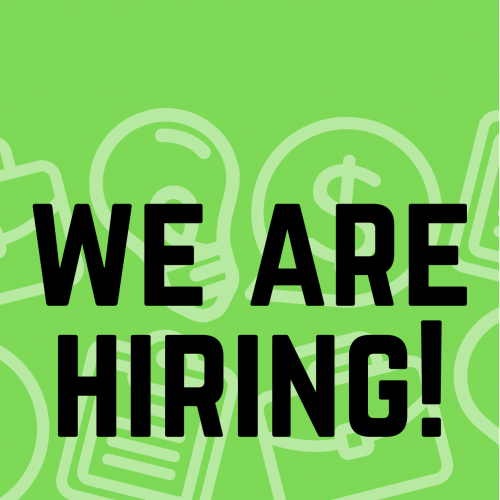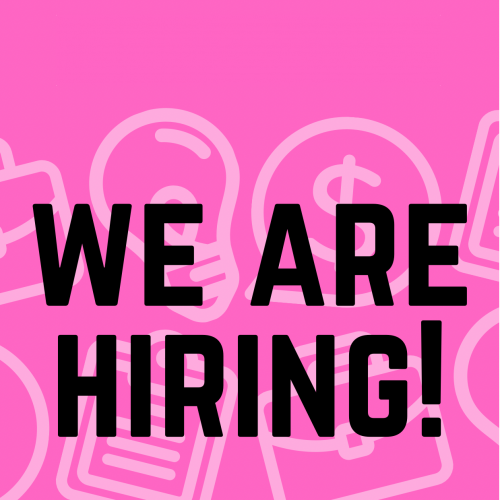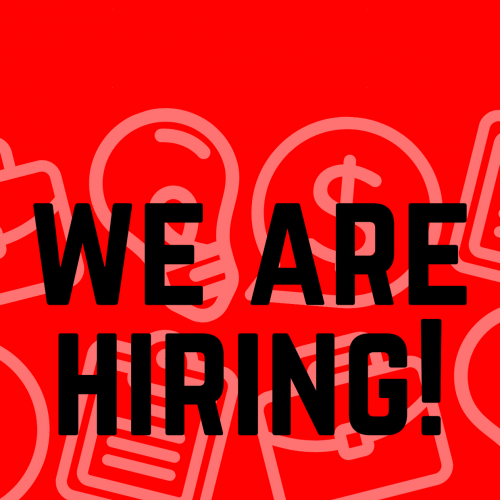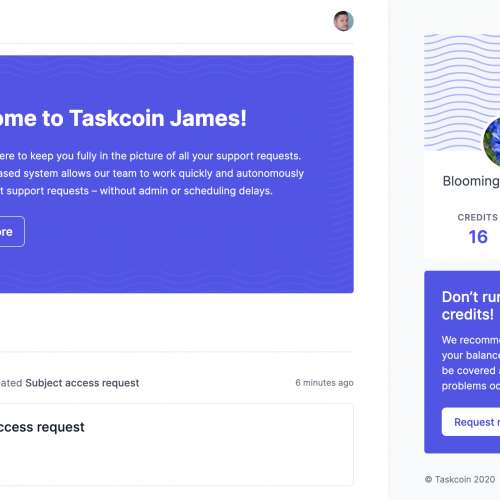We were recently joined by Bitcoin enthusiast and founder of SeeBitcoin, John Hardy, who came into the Simpleweb office chat to us about the socio-political effects of Bitcoin and the future of money.
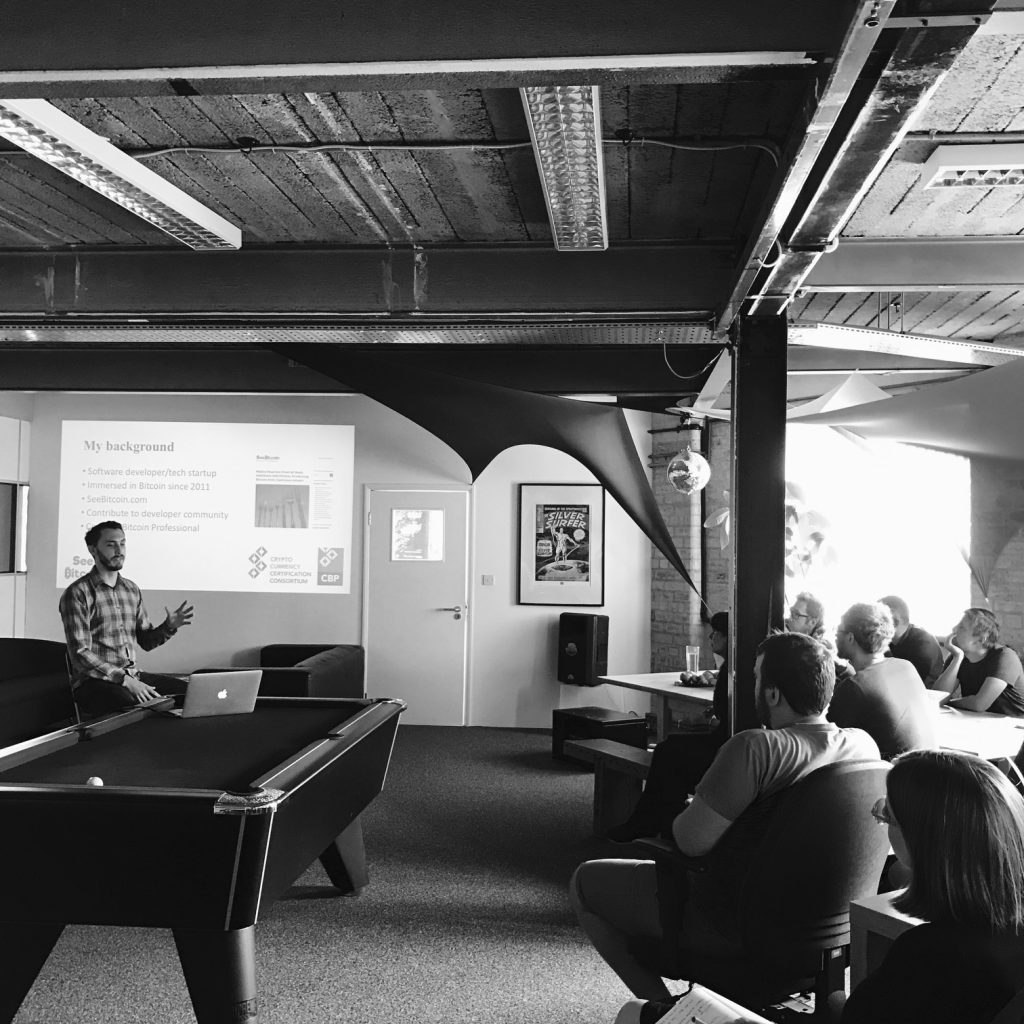
A software engineer by trade, John first became “obsessed” (his own word!) with Bitcoin in 2011 but his curiosity around money was piqued when his grandparents gave him a pack of dollars for a childhood holiday to Disneyland…
“The thing that interested me most in the pack was this little slip of paper that had the exchange rate from pounds to dollars and the history of how this number had changed. It struck me as weird that money is just a way of storing value and transacting. So why does all the world use different currencies?”
In 2011 John stumbled across Bitcoin eventually becoming “obsessed and went totally down the tech rabbit hole”. His journey eventually led him to question the very concept of money and how we take it for granted…
The evolution of money
“Anything can be money” John says. “We all tend to have a very clear idea on what money is, but really it’s nothing more than a social construct.”
John talked about the Rai stones of Micronesia which were used by an ancient civilisation to pay for goods. “Instead of people lugging the giant stones to pay for their groceries, they had a word of mouth agreement so they knew who owned which stone. The entire monetary system was verbal.
“The idea that future generations are going to look at money in a way that we do now would be naive”
“The idea that future generations are going to look at money in a way that we do now would be naive”, he said. Ultimately, John says “money is trust that what we hold will be accepted, useful and hold its value.”
“Money is useful when it is a widely accepted medium of exchange. You can go in a shop and spend it. Money needs to be fungible, meaning that you can be certain that one five pound note is worth the same as another. Diamonds, for example, come in different sizes and values and are therefore not fungible.”
Another key quality of money is the store of value John says, using the Zimbabwean one hundred trillion dollar bill as an example.
“The Zimbabwean dollar is a terrible store of value. By the time the Zimbabwean dollar came to its final collapse, a hundred trillion dollar bill wasn’t even enough to pay for the bus trip home. I don’t know how you can deal with numbers like that!”
“Goats can be used as a currency” John says. “In Zimbabwe, there is real problem in the money system, there have been schools that have started accepting goats as payment.” Why is this an issue? Because “goats aren’t divisible. Half a goat is not the most effective form of payment unless, you’re hungry quite immediately.”
Finally, money needs be to durable. “If you put money in a safe for twenty years you want to know its going to be there when you come back.”
“We live in unprecedented times… I think there is a general sense of unease…”
“We’ve learned from history that a currency is useful until it isn’t” John says. “We live in unprecedented times… I think there is a general sense of unease… if you think we’re immune in the West, look at Greece. In 2015 there was pressure on the banking system (and this is an EU country that uses Euros) and they actually put limits on people accessing their own money. When things go wrong these are the sorts of restrictions that can and do happen.”
For John, the answer lies in cryptocurrency, or more specifically, Bitcoin…
What is Bitcoin?
John defined Bitcoin as “the world’s first decentralised digital currency… for the first time, we have a way of sending value from one person to another digitally without relying on a central authority such as a bank or Paypal.”
John sees decentralisation as the revolutionary aspect of Bitcoin which itself is reliant on blockchain technology.
The simplest way John says he can explain the Bitcoin blockchain is using cheques as an analogy.
“When you have a cheque you know who it’s from, who it’s to, the amount and there’s a signature to verify you are authorised to send that cheque.
“Instead of handing that cheque over to the recipient who hands it to their bank, you have this blockchain super ledger. You have transactions that have the same properties as a cheque with a digital signature, but unlike regular signatures which are easy to fake, these are mathematically provable with certainty, that the person who created that transaction has the permission to do that.
“Essentially, the blockchain is a ledger of every single transaction that has ever taken place, meaning you don’t need to trust a third party like a bank.”
The digitisation of trust
John sees Bitcoin as being the beginning of the digitisation of trust, and believes this technology gives us a choice about the future of our economy.
“human policy makers are flawed and our financial system fails spectacularly, just look at the 2008 financial crisis.”
“We always think the policy makers will get trust right”, John says. But in reality, “human policy makers are flawed and our financial system fails spectacularly, just look at the 2008 financial crisis.”
John sees the Bitcoin blockchain as a means of offering a new type of trust that can be measured and is objective. “A lot of people are losing trust in our financial system” he says, “for the first time you don’t have to trust in people, it’s code that you can verify.”
“There should be no reason that everyone in the world can not be fed or housed”
“Every other facet of our society has been changed unrecognisably by technology” says John. “Although we’ve added a nice digital front-end to the actual systems, financial institutions haven’t changed in a century.”
John believes that recent surges in technology have made us more productive than we’ve ever been, that we now have an abundance of resources that ought to be distributed more fairly. “There should be no reason that everyone in the world can not be fed or housed”, he says, “the resources are there but the current system is concentrating wealth in a certain way.”
You can find out more about John on Twitter or at seebitcoin.com.
If you’d like to discuss your startup or project, get in touch with Simpleweb today.
